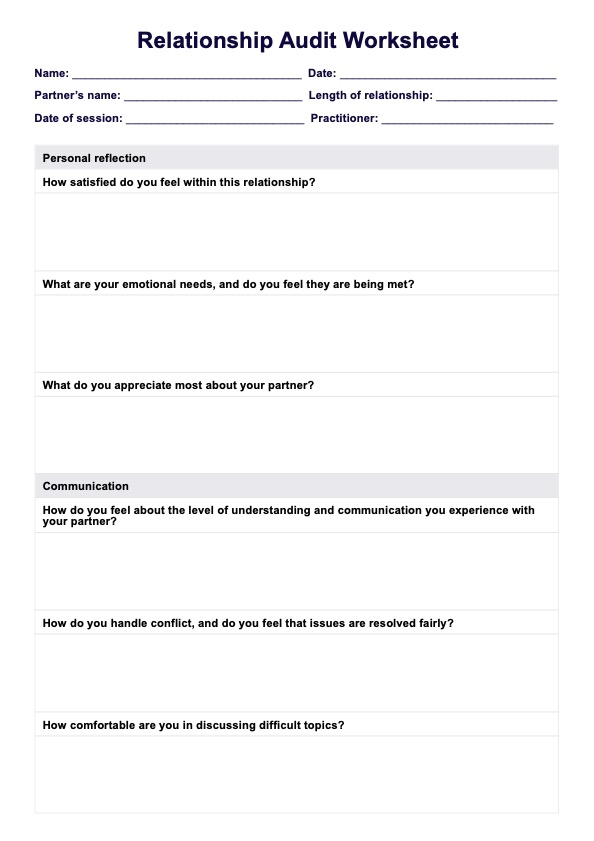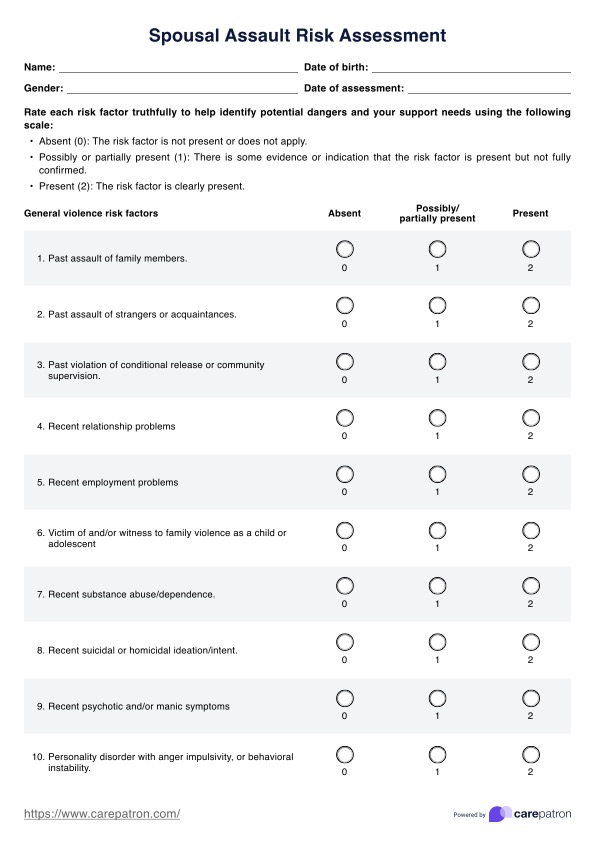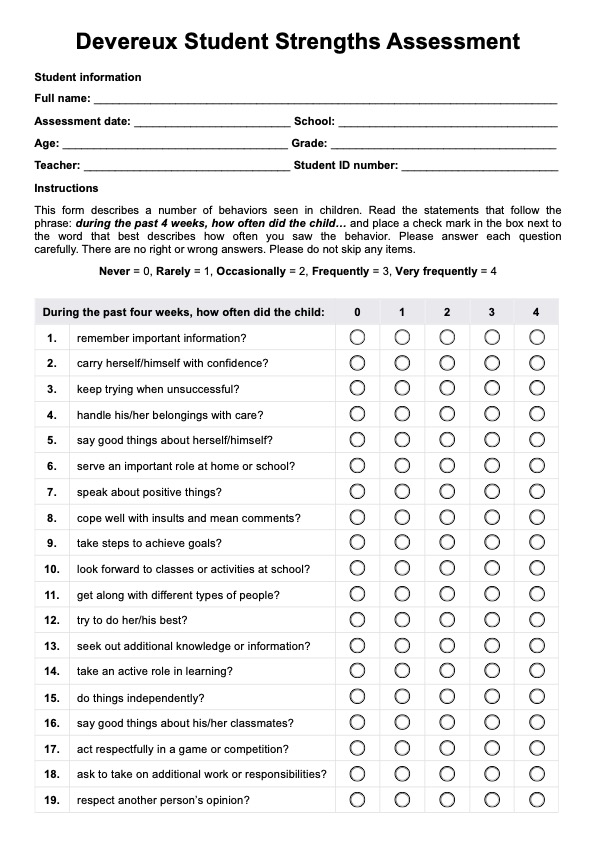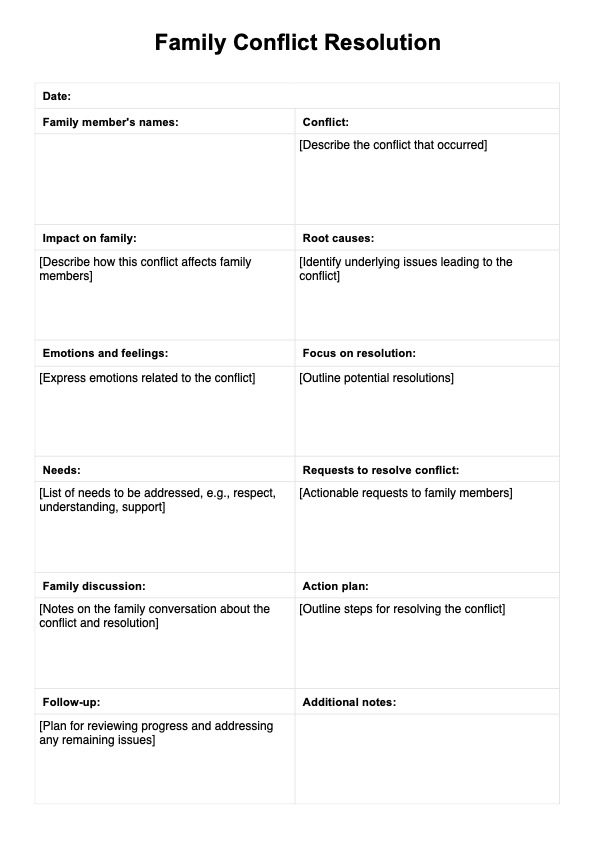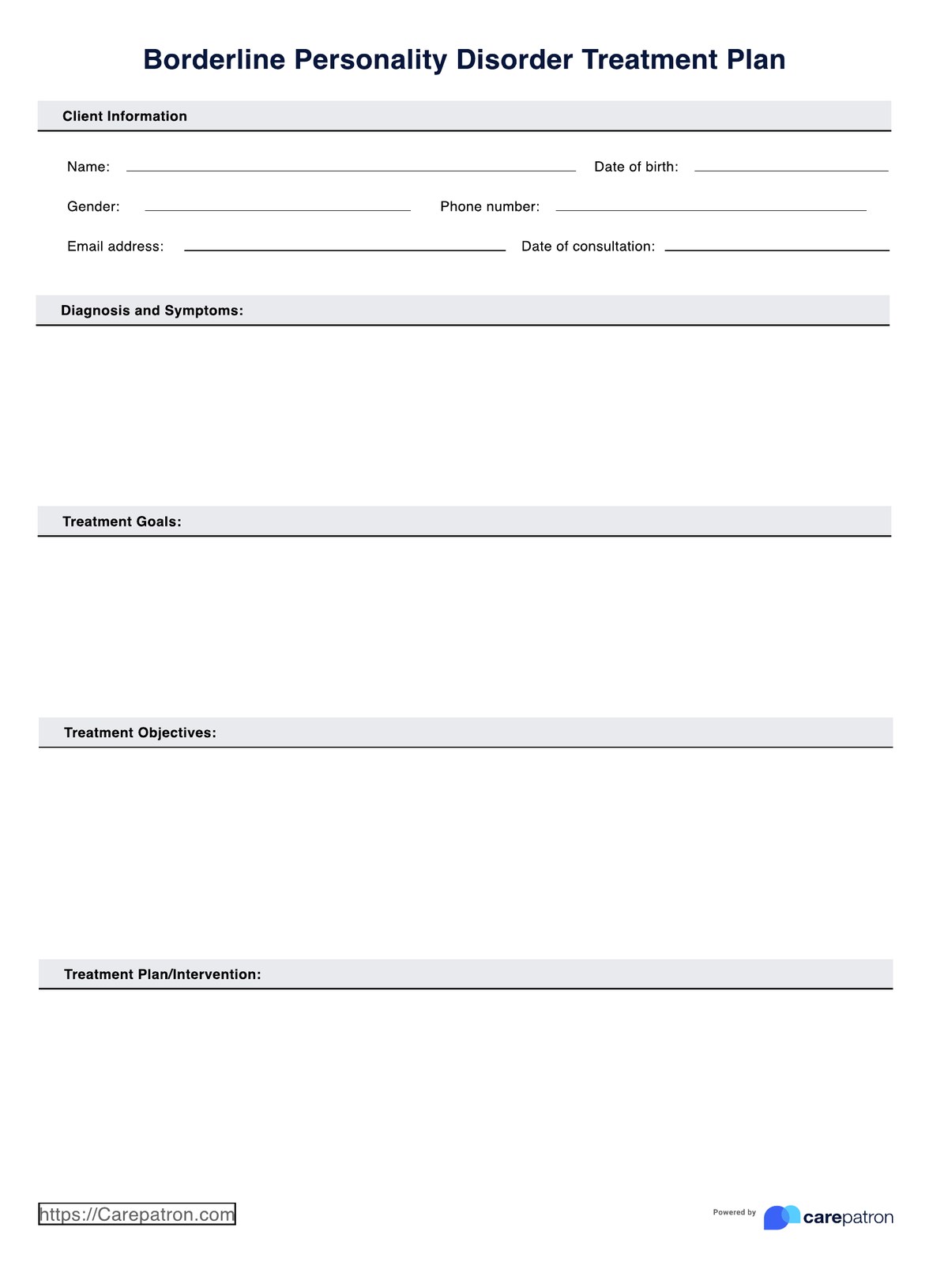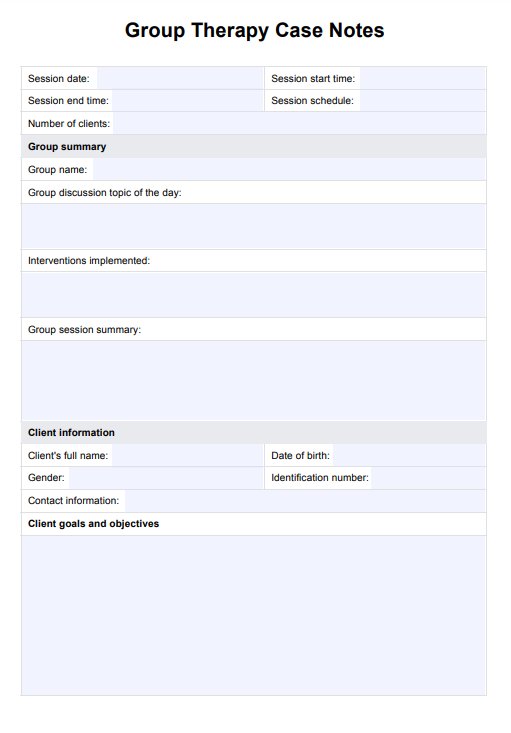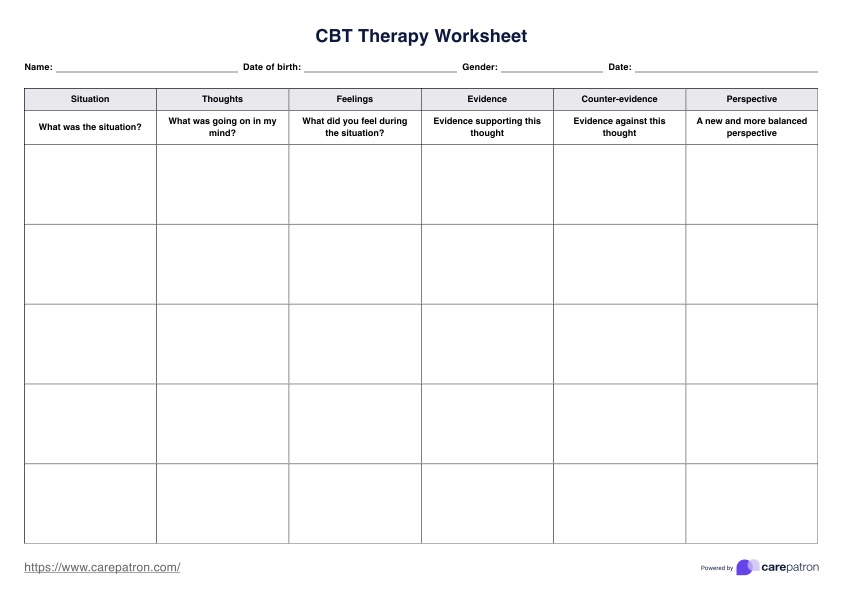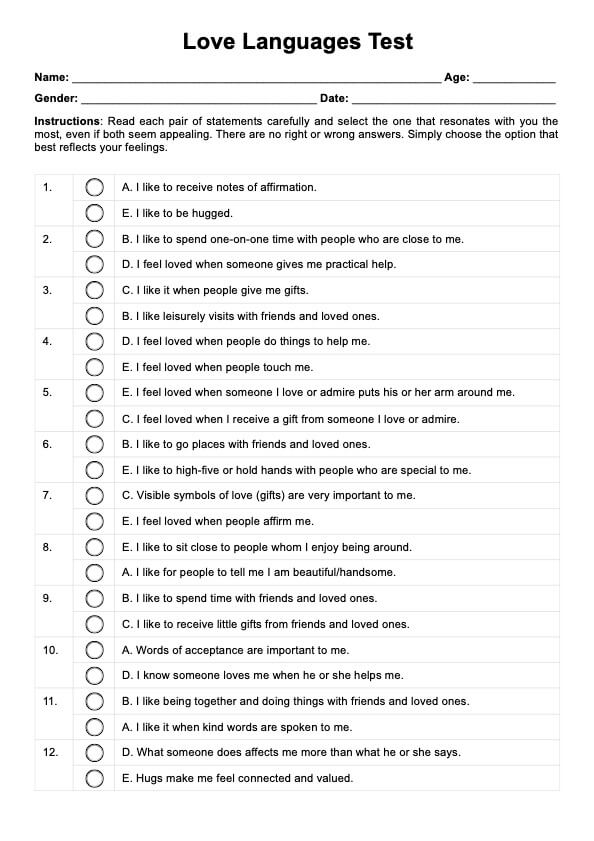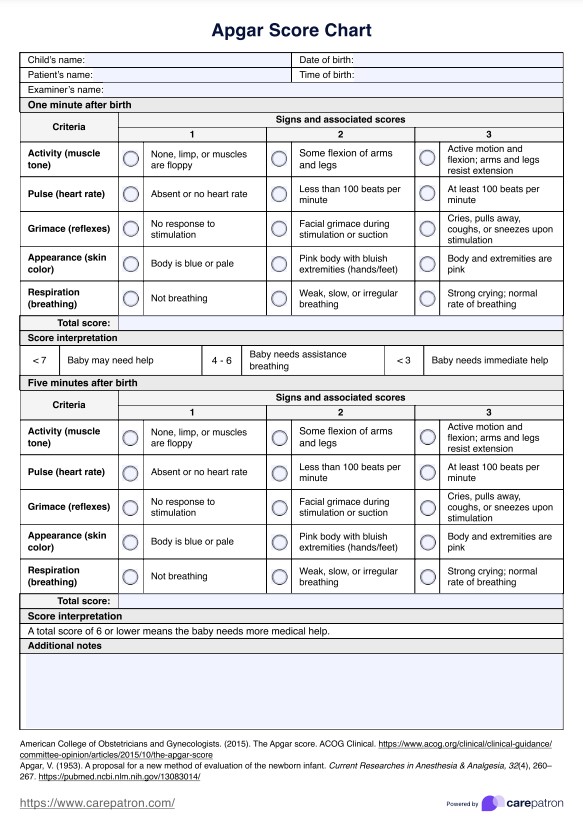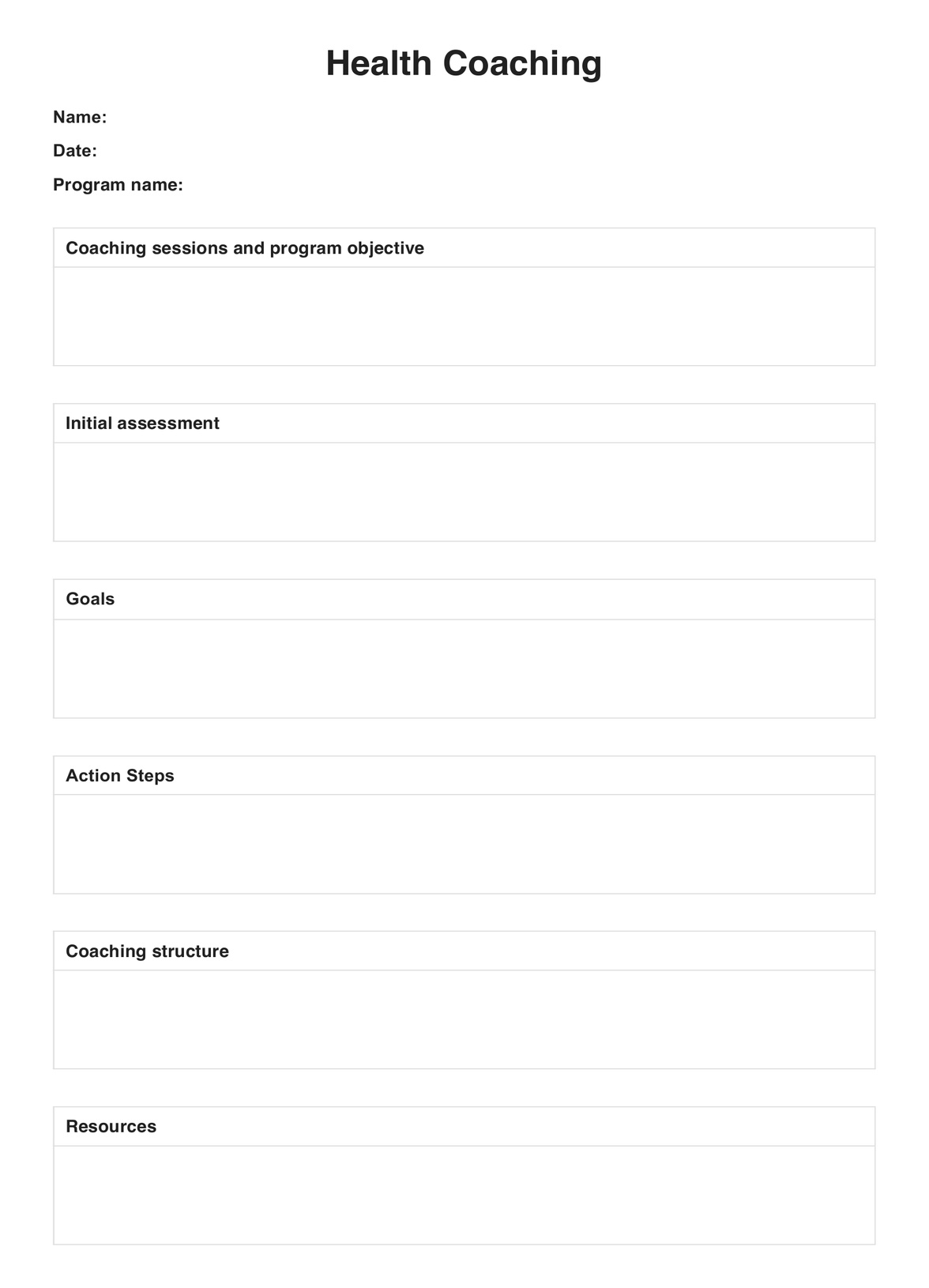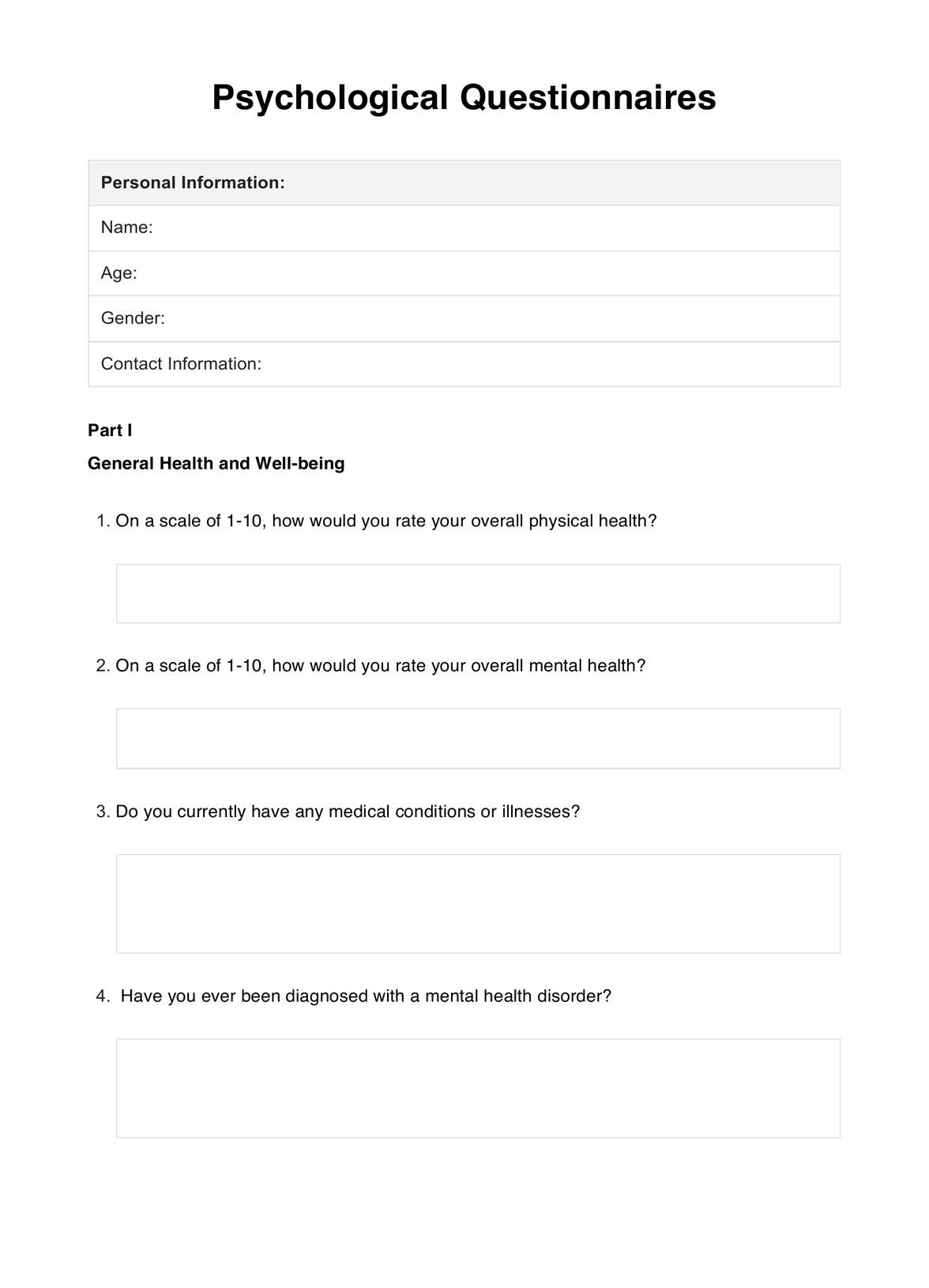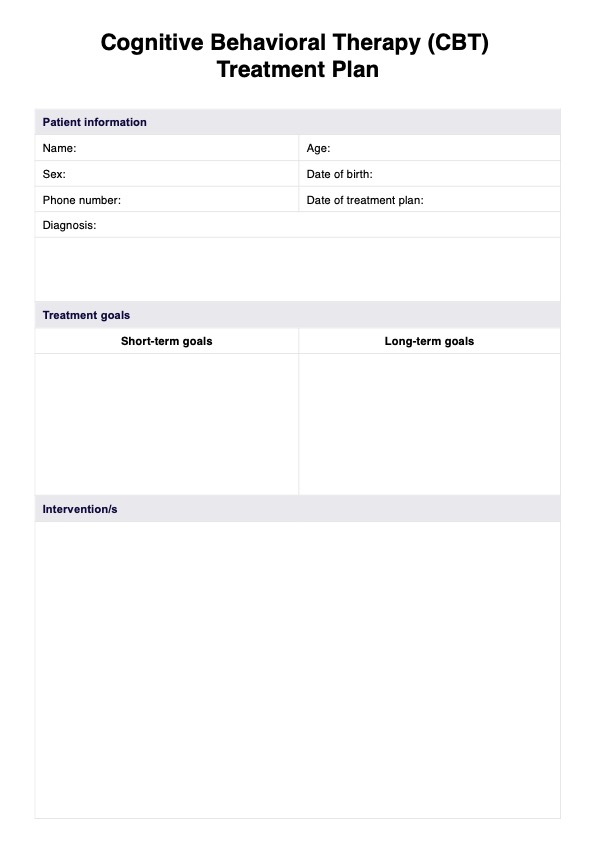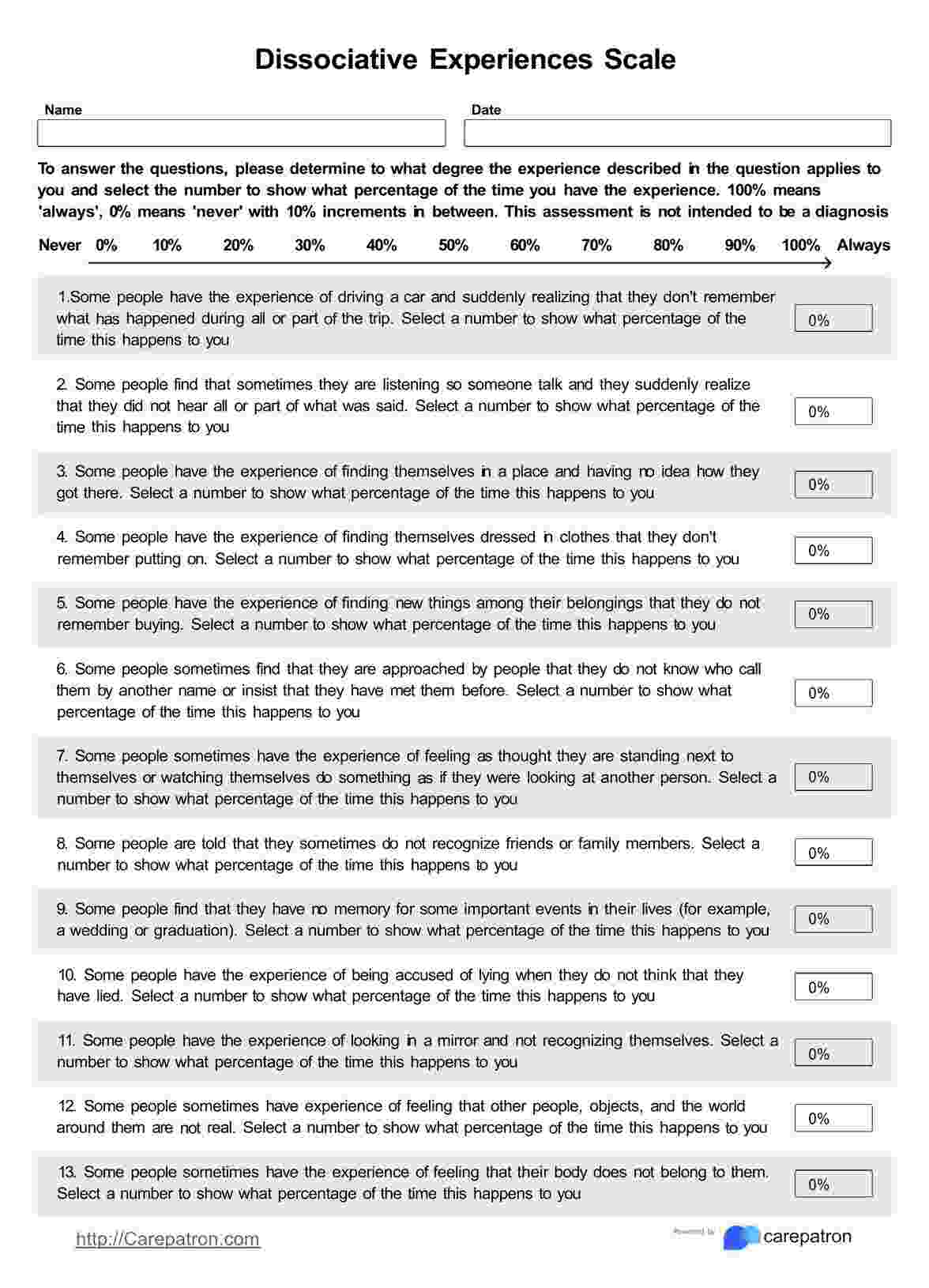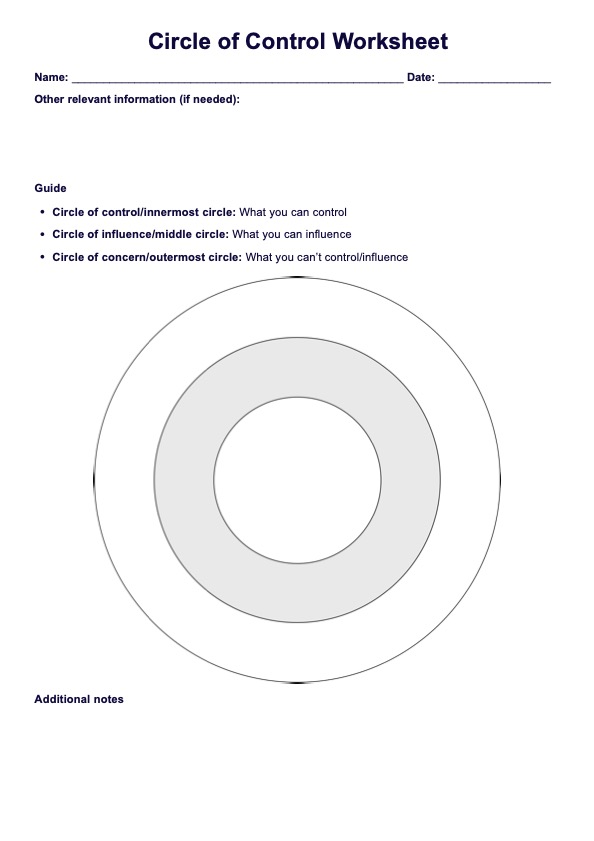Coping Skills for Anger Handout
Explore effective anger management techniques with our free Coping Skills for Anger Handout. Learn to manage emotions and improve well-being.


What is anger management?
Anger management refers to recognizing signs of anger and acting to calm down and deal with the situation in productive ways. It involves understanding anger triggers, recognizing early warning signs, and developing strategies to cool down before the emotion becomes overwhelming and you start to feel worse.
The goal of anger management is not to suppress feelings of anger but rather to understand the message behind the emotion and express it in a healthy way that doesn't harm others or oneself.
Coping Skills for Anger Handout Template
Coping Skills for Anger Handout Example
How do anger management specialists conduct their sessions?
Anger management specialists employ various techniques to help individuals understand and control their anger. They begin by helping clients identify the triggers that lead to anger and the specific warning signs that signal escalating anger - for example, being stuck in a traffic jam. Through the sessions, individuals learn effective communication skills to express their feelings and needs without aggression.
Specialists also teach coping skills and relaxation techniques, such as progressive muscle relaxation and deep breathing, to help individuals stay calm in their emotional state and prevent anger from reaching a boiling point.
They help identify and clarify warning signs
One of the first steps in managing anger is recognizing the early warning signs that anger is building. These can vary widely among individuals but often include physical cues like muscle tension, changes in breathing, or a racing heart, as well as emotional and cognitive signs such as feeling irritable, upset, experiencing rapid thoughts, or a sense of injustice. Anger management specialists work with individuals to help them become more aware of these warning signs, making it easier to take proactive steps before emotions escalate.
They teach communication skills
Effective communication is vital in managing anger, especially when expressing frustrations or needs. Anger management sessions often focus on teaching communication skills that enable angry individuals to express themselves clearly and assertively without using words or aggression. This includes using "I" statements to convey feelings and needs, active listening to understand others' perspectives, and learning to negotiate and find compromises.
They teach coping skills and relaxation techniques to control anger
In addition to identifying warning signs and improving communication, anger management specialists equip individuals with practical coping skills and relaxation techniques. These skills are designed to lower the emotional and physiological arousal that experiencing anger can cause.
Techniques such as deep breathing exercises, progressive muscle relaxation, and visualization can help calm the mind and body, reducing the intensity of feeling angry. Specialists may also introduce problem-solving strategies to address the root causes of anger and teach ways to shift from a reactive stance to a more thoughtful, controlled approach to challenging situations.
By addressing these key areas, anger management sessions provide individuals with a comprehensive toolkit for understanding and managing their anger. Through identifying warning signs, developing effective communication skills, and applying coping and relaxation techniques, individuals can learn to navigate and control their emotional state more effectively, leading to healthier relationships and an improved quality of life.
Examples of coping skills for managing anger
Progressive muscle relaxation
This technique involves tensing each muscle group in the body tightly, but not to the point of strain, and then slowly relaxing them. Progressive muscle relaxation helps reduce the sense of physical tension that often accompanies anger, leading to a feeling of calmness.
Deep breathing
Deep breathing exercises can help control anger by slowing down the heart rate and lowering blood pressure, which are often elevated in states of anger. Taking slow, deep breaths helps to shift focus away from the emotions anger triggers and facilitates a calmer emotional state.
Stay physically active
Regular physical activity can provide an outlet for frustrations and manage stress that can lead to anger. A brisk walk, a run, or any form of exercise can help release the tension that builds up when you feel angry, making you feel calmer.
Take a timeout
Stepping away from a situation escalating into an argument can prevent your anger from boiling over. A timeout can allow you a moment to cool down, collect your thoughts, and approach the conversation or situation more calmly later.
Practice problem-solving
Not all anger issues are misplaced; sometimes, they signal that something in your life needs to change. Practicing problem-solving can help address the root cause of your anger and find constructive solutions to deal with the issues at hand.
Use "I" statements
When expressing frustration, using "I" statements helps communicate your feelings without blaming or criticizing others, which can escalate tension. For example, a person might say, "I feel upset when..." instead of the words, "You always make me angry..."
Visualize a relaxing experience
Visualizing a peaceful scene or imagining yourself in a tranquil state can help take the edge off your anger. This mental escape can provide a brief moment of respite to break you from the emotions and help you return to your situation feeling calmer.
How does our Coping Skills for Anger Handout work?
Our printable Coping Skills for Anger Handout is designed as a practical tool for individuals seeking to understand better and manage their angry feelings. It outlines various strategies, exercises, and techniques for dealing with anger in healthy and positive ways, incorporating detailed instructions on how to apply these methods in daily life. By following the guidance provided in the handout, users can develop a personalized approach to managing anger and improving their emotional well-being.
What problems can uncontrolled anger cause?
Uncontrolled anger can lead to numerous problems, affecting personal relationships, work performance, and overall quality of life. It can contribute to mental health issues such as anxiety and depression, physical health problems like high blood pressure and heart disease, and can even result in verbal or physical confrontations. Managing anger effectively is crucial for maintaining a healthy and balanced life.
Benefits of practicing oping Skills for Anger
Practicing coping skills for anger brings numerous advantages, significantly impacting one person's emotional well-being and overall quality of life. By adopting strategies to manage anger more effectively, individuals can experience a reduction in stress and a host of other benefits that enhance daily living and interpersonal relationships.
Reduce stress
Implementing positive coping skills for anger can significantly reduce stress levels. By managing anger proactively, individuals can avoid escalating stressful situations, leading to a more peaceful world and less tense daily life.
Regulate blood pressure
Anger and stress can cause spikes in blood pressure, posing a risk to heart health. Coping skills that promote relaxation and stress management can help keep blood pressure in check, contributing to overall physical well-being.
Commonly asked questions
To quickly calm down, try deep breathing exercises: inhale deeply through your nose, hold for a few seconds, and exhale slowly through your mouth. You can also practice progressive muscle relaxation or momentarily remove yourself from the situation.
Regular physical activity like walking, running, or yoga can significantly reduce stress and anger. Additionally, engaging in hobbies you enjoy, practicing mindfulness or meditation, and ensuring sufficient rest can help manage anger effectively.
If your anger feels overwhelming and difficult to manage or cope with on your own, consider seeking support from a mental health professional. Therapists specializing in anger management can provide personalized strategies and support to help you understand and control your anger.

.jpg)
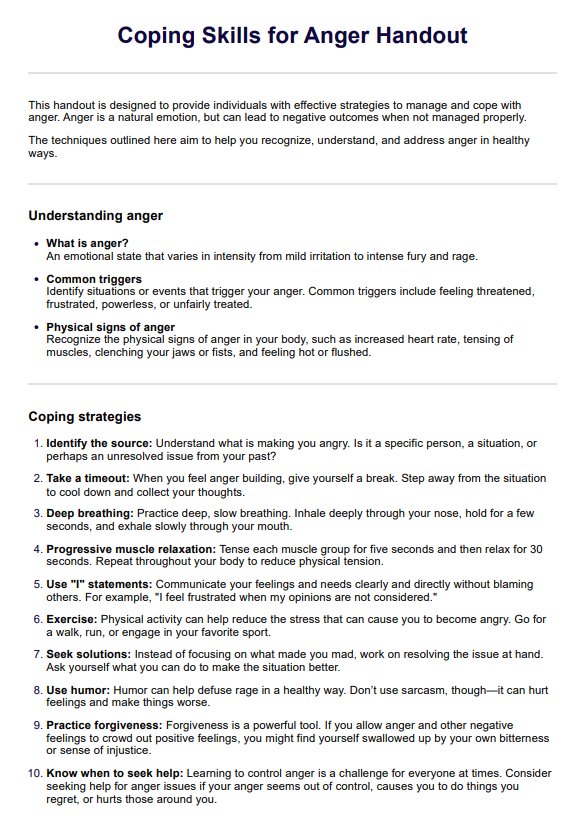
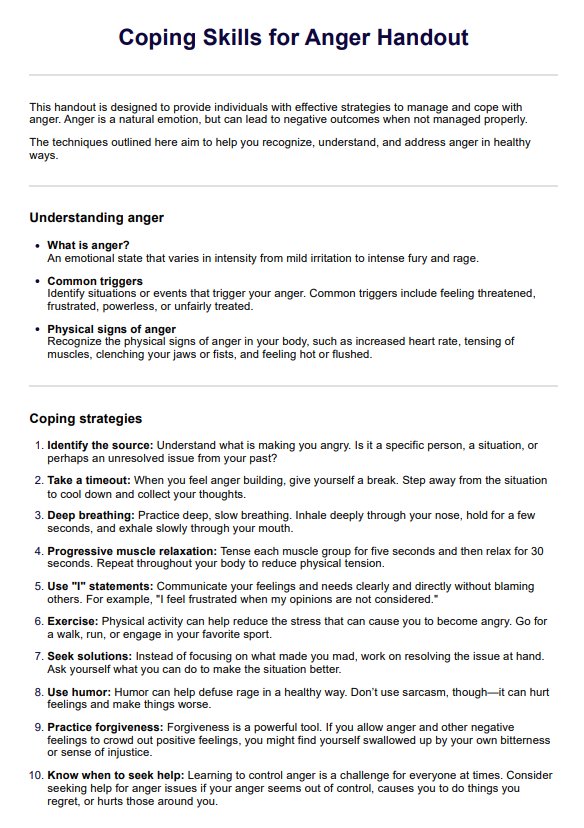

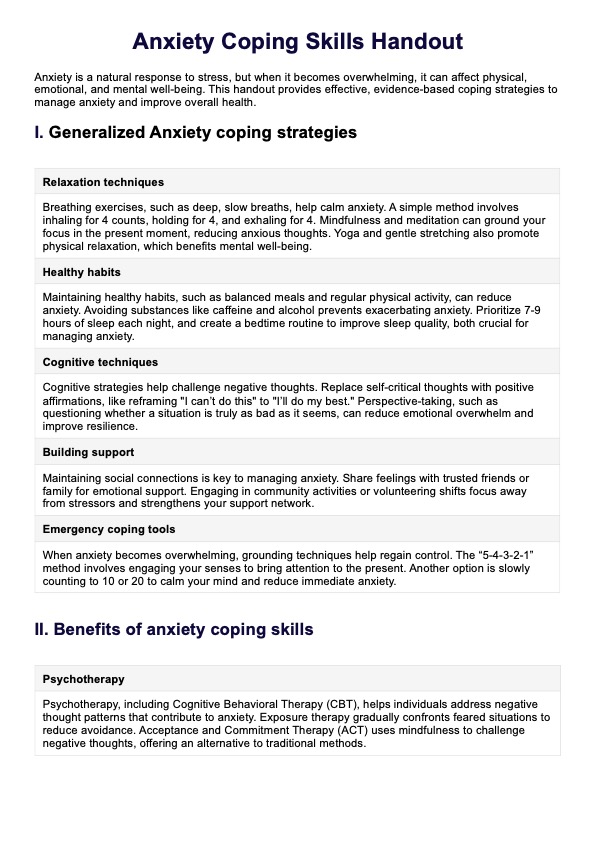
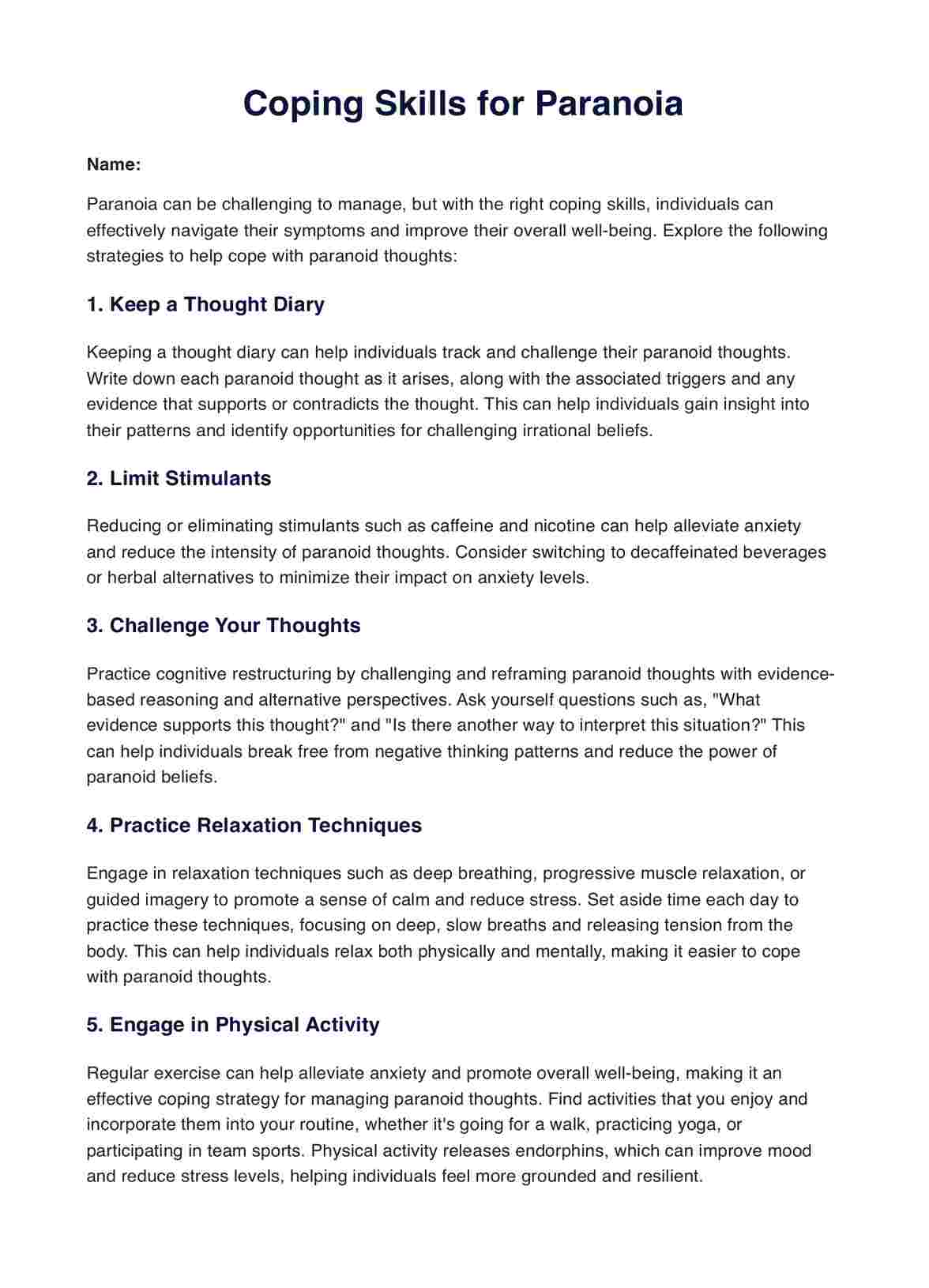















-template.jpg)


